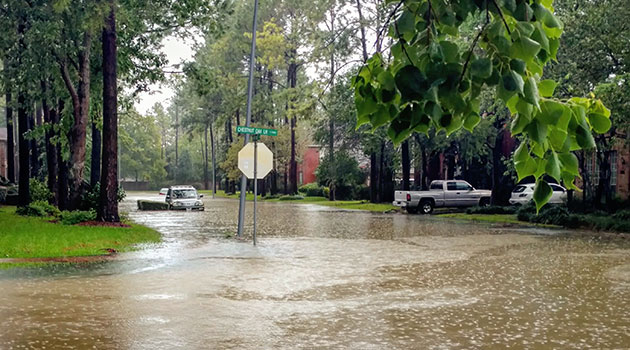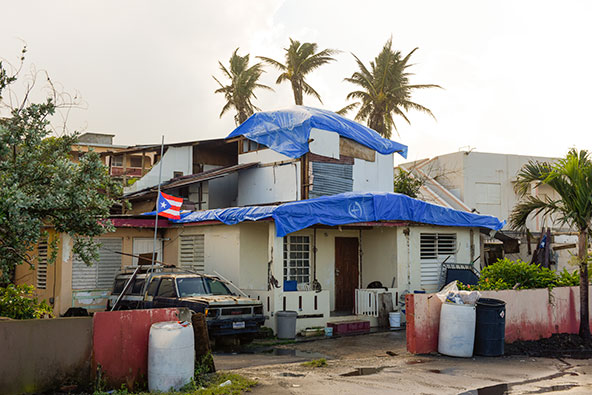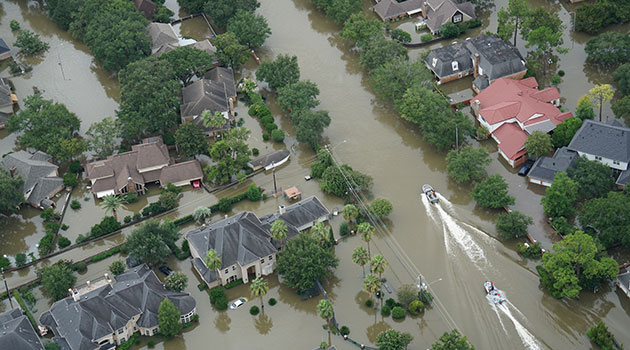Of all the natural disasters produced by the planet, hurricanes are the biggest possible storms that could arise—and often the most destructive.
About 90 of the seaborne cyclones are formed every year, stirring up nearly all of the world’s oceans and impacting countless communities globally.
And according to some estimates, that number will only continue to grow.
Climate experts predict the storms will not only become more frequent in the years to come, but more powerful. (Hurricane Harvey, which devastated Houston last year was a Category 4, the second-highest designation for a cyclone. Hurricane Maria, responsible for thousands of deaths and untold damage in Puerto Rico, was the most-powerful Category 5.)
At the same time, more people than ever are living in the country’s coastal regions, putting a growing number of citizens in the way of potential harm.
But if you’ve suffered through these storms, don’t worry: there are plenty of ways to help restore order in the aftermath, at least from a financial point of view.
Keep reading for more information on the type of coverage you can expect—or not—from your car, homeowners, and flood insurance policies, and tips on how to find the help you need.
Car Insurance

If a destructive storm damaged your vehicle, you’ll have to go above and beyond a common policy to start seeing some coverage.
When it comes to auto insurance, hurricanes are considered an “Act of God,” which means an incident not dictated or influenced by humans. Damage caused by the storms, and other natural incidents falling under this category, are not covered by minimum liability policies.
Acts of God are part of comprehensive auto insurance plans, which cover a broader spectrum of potential issues, including destruction wrought from flooding, high winds, and falling objects. (Comparatively, minimum liability plans will only cover damage or bodily harm induced in an accident caused by you.)
Still, in order to reap the benefits of comprehensive insurance, you’ll have to be proactive.
Many insurance companies will put a temporary pause on updating policies in areas where hurricane or tropical storm warnings have been issued. These short-term restrictions are often issued just after a warning has been put into effect can stay in place up to 72 hours after the warning expires.
Many car insurance companies temporarily suspend policy updates in areas where hurricane or tropical storm warnings have been issued. If you need to update your policies, try to do so beforehand.
If you live in a hurricane-prone area, and your policy is set to expire during hurricane season, consider updating your plan as soon as possible—and upgrading to a comprehensive package.
If the damage has already been done and you don’t have comprehensive insurance, it may still be possible to file a claim under a less-extensive policy, depending on how the vehicle was damaged. Contact your insurance provider right away for more information.
Homeowners Insurance

Homeowners insurance policies are typically far more nuanced than auto insurance coverage. At the same turn, the plans are usually much more customizable than a typical car insurance package.
Most major insurers will offer personal property coverage, which can account for some vehicle-related damages or incidents of theft. (This is typically an additional benefit that comes at the cost of a higher premium.) Still, many plans will not cover your automobile, even if it’s parked in your driveway or inside your garage at the time of the incident.
If a hurricane damaged your home, you may, too, have to read the fine print of your policy. Many homeowners insurance plans will cover wind damage—for example, if the roof blows off of your house—but not damage caused by flooding.
Other policies, especially those issued in hurricane-prone areas, will leave wind damage out of the package all together or trigger pricier “hurricane deductibles” in the case of a storm.
If you have further questions about what your homeowners insurance will and will not cover, call your provider.Flood Insurance
If you live in a hurricane- or flood-prone area, it may be a good idea to purchase flood insurance on top of your auto and homeowners plans. (Indeed, federal law dictates that those living in particularly susceptible locations MUST purchase a plan.)
To help people follow its strict rules, the government created the National Flood Insurance Program (NFIP), which is the nation’s most widely-used method for obtaining flood insurance. Plans offer up to $250,000 worth of coverage for building property and up to $100,000 to cover the contents of your home.
Still, the federal package doesn’t account for auto damage.
If you have private flood insurance, you may be able to file an auto-related claim. Call your provider for more information.
And hurricane damage questions involving any of your personal affects can be directed to the Federal Emergency Management Agency.